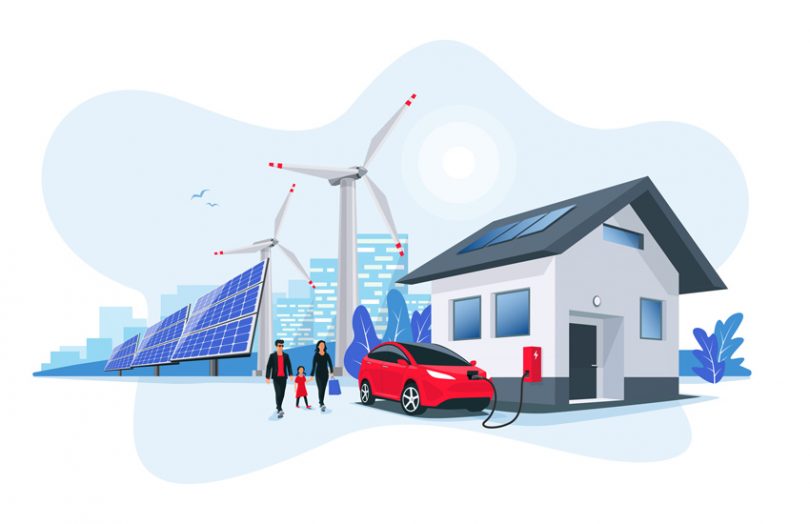On 9 September 2020, Japan’s Ministry of Economy, Trade, and Industry announced the continuation of its Regional Microgrid Construction Project, this time with Kyocera, ALI Technologies, and REVEX. This second phase of the project will begin this month and last until February 2022. It aims to build a regional microgrid and create a blockchain-based model that could potentially be used throughout Japan.
The project targets surplus electricity from solar power generators, which are installed in ordinary households located in Odawara City in Japan’s Kanagawa Prefecture. Excess electricity will be stored in large batteries and electric vehicles (EVs). The blockchain-based Regional Energy Management (REM) system designed by ALI Technologies manages electricity that’s produced and consumed locally. The system will centrally manage all power generation, including excess supply, as well as demand. The ultimate aim is to build a regional renewable energy-sharing model.
In the event of an emergency, the grid power supply can be disconnected and the microgrid will continue to operate via the solar panels, storage batteries, and EVs.
The project will also launch a consortium with Odawara City (Kanagawa Prefecture) and Shonan Electric Power, a local Kanagawa electric power company.
The consortium coordinator is Kyocera, the leading global supplier of solar power systems, printers, and other electronics. It will also provide the solar panels and storage batteries, and operate part of the microgrid. This is not Kyocera’s first project involving blockchain. In early 2019, Kyocera joined LO3 Energy in a project testing a blockchain-based virtual power plant, a network of decentralized medium-scale power generating units.
ALI Technologies develops advanced technologies such as AI, blockchain, and drones. Its role is to balance supply and demand and introduce its blockchain-based Regional Energy Management (REM) solution. REM will be able to analyze the data stored through smart meters which will act as blockchain nodes.
REVEX is a technology firm focused on e-mobility and energy sharing using EV batteries. It will provide the EV energy management system.
Japan has been looking into renewable energy for some time now. This arguably comes as a result of the 2011 earthquake and tsunami, causing the Fukushima disaster. Solar power and other renewable energy sources have been a focus ever since then, with blockchain and distributed ledger technology now providing safer, quicker, and more efficient solutions.
Two years ago, a separate consortium that included MUFG and Unisys announced plans to begin research on pricing surplus solar power and a blockchain trading system. Other startups exploring energy trading marketplaces include Australian firm Power Ledger, which announced a trial for P2P solar energy trading in Japan’s Kanto region late last year. Power Ledger previously trailed its platform with KEPCO, Japan’s second-biggest energy firm, and announced the trial’s extension earlier this year.






